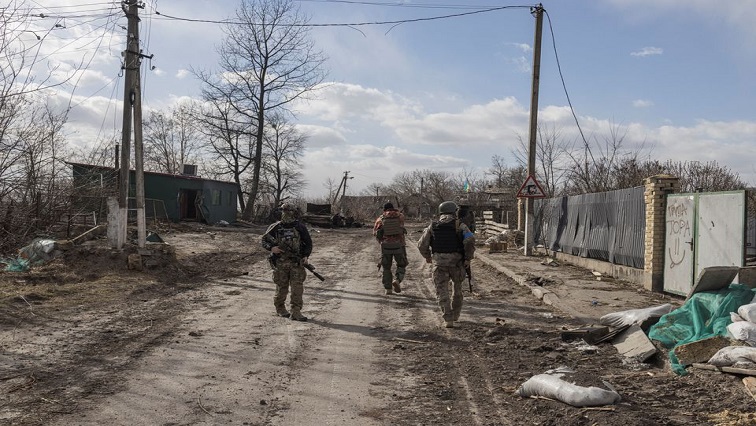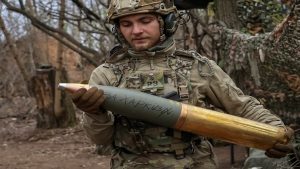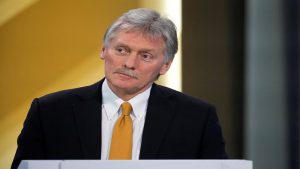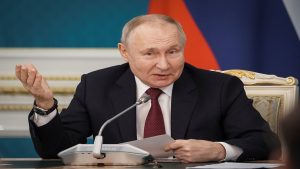Russia is promising to scale down military operations around the Ukrainian capital, Kyiv, while Ukraine is suggesting it might adopt a neutral status in confidence-building steps that may help de-escalate the five-week war.
TALKS AND DIPLOMACY
Ukraine proposed not joining alliances or hosting bases of foreign troops.
The United States is sceptical of Russia’s seriousness in pursuing peace.
Russian President Vladamir Putin and French counterpart Macron talk again by phone.
Ukrainian President Zelenskyy will address Australia’s parliament on Thursday.
The United States and Russia both head to India to lobby its government, which has called for a ceasefire but not condemned Russia’s invasion.
RUSSIANS EXPELLED
The Netherlands has expelled 17 Russians it says were intelligence officers posing as diplomats. Belgium announced a similar move, expelling 21 people accused of being involved in ‘espionage operations’.
At the same time, the European Union and the United States have vowed to increase cooperation on the implementation of sanctions against Moscow over the war in Ukraine.
FIGHTING
British military intelligence says Russian units suffering heavy losses have been forced to return to Belarus and Russia to organise and resupply.
Residential areas of Ukraine’s eastern city of Lysychansk wereshelled by heavy artillery, the regional governor said. A Russian rocket hit an administration building in Mykolaiv, killing at least 12 people.
Defence Minister Shoigu said Russia had degraded Ukraine’s Military and would respond if NATO supplied planes and air defence systems.
ECONOMY
Share markets and global borrowing costs surged on signs of progress in talks. Ukrainian bonds and Russia’s roubles also benefited, while the oil price dropped.
Holcim, the world’s biggest cement maker, said it was exiting the Russian market; Japan will ban the export of high-end cars and luxury goods to Russia; Germany wants to end all fossil fuel imports from Russia.
HUMANITARIAN COSTS
A catastrophe on top of a catastrophe is how the head of the World Food Programme has described the broader implications of the War in Ukraine.
David Beasley was briefing the United Nations Security Council on the humanitarian costs of the war but also the wider implications on their operations globally given that Russia and Ukraine produce almost 30% of the global supply of wheat.






